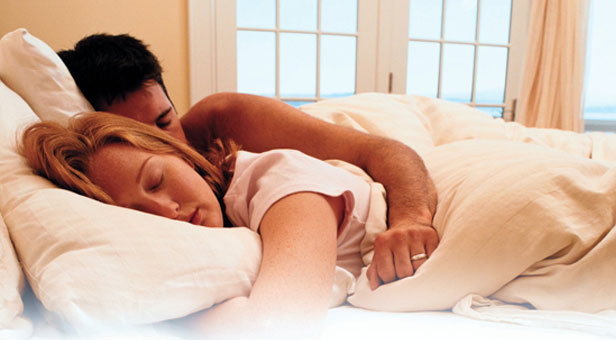
Ladies dancing, lords a-leaping, pipers piping and drummers drumming all need time a-sleeping this Christmas – that’s according to The Sleep Council.
And as the countdown to the big day is well underway, it has unveiled a sleep survival plan for feeling your best through the festivities.
Said spokeswoman Lisa Artis: “Christmas is the one time of the year when the sleep routine of just about everyone in Britain goes off the rails. Christmas shopping and its associated costs, family gatherings, social engagements, food and alcohol – can all put a strain on you and your sleeping patterns.
“We’re not suggesting you play Scrooge and don’t party or have any mince pies; but if you’re not getting as much rest as you need and you’re starting to feel it, try following these simple tips to help yourself to get a better night’s sleep.”
Try as much as possible to keep regular hours – although it can be hard when you’re staying up late for Santa! Going to bed and getting up at roughly the same time, all the time, will programme your body to sleep better.
Create a restful sleeping environment. Keep the Christmas decorations to the other parts of your home. Your bedroom should be kept for rest and sleep and it should be neither too hot, nor too cold; and as quiet and dark as possible.
Make sure your bed is comfortable. It’s difficult to get deep, restful sleep on one that’s too soft, too hard, too small or too old. It should also be as big as possible so your partner rarely disturbs you. Perhaps a new bed should be on your Christmas present list.
Take more exercise. Regular, moderate exercise such as swimming or walking can help relieve stresses and strains. But not too close to bedtime or it may keep you awake. A good brisk walk is ideal to stop you feeling sluggish after a hefty Christmas dinner.
Don’t end up compensating for lack of sleep by going too heavy on stimulants such as caffeine in tea, coffee or cola – especially in the evening. They interfere with falling asleep and prevent deep sleep. Have a hot milky drink or herbal tea instead.
Don’t over-indulge on turkey, mince pies and mulled wine. Too much food or alcohol, especially late at night, can play havoc with sleep patterns. Alcohol may help you fall asleep initially, but will interrupt your sleep later on in the night. It is hard in the party period but try to swap to water a couple of hours before bedtime.
Keep some ear-plugs handy to block out the sound of your partner’s alcohol or feast-induced snoring!
Try to relax and insist on some ‘me time’ before going to bed. Give both the mind and body time to wind down by having a warm bath, listening to some quiet music or doing some yoga. Watch our video here (https://www.youtube.com/watch?v=CW2ZejN3OFg) for some top tips on relaxing before bed.
Resolve arguments before bed. Ongoing conflicts are not conducive to putting you in the right frame of mind for sleep.
If you can’t sleep, don’t lie there worrying about it. Get up and do something you find relaxing until you feel sleepy again – then go back to bed.
The Sleep Council has a free guide for parents packed with helpful tips and advice on establishing good sleeping habits to last a lifetime. The Good-Night Guide for Children is available from The Sleep Council by calling 0800 018 7923 or visiting www.sleepcouncil.org.uk






